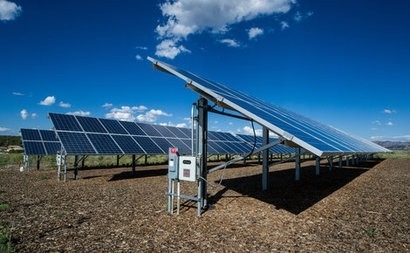
Solar energy provider REC Group has issued a statement on the Supreme Court’s decision to stay the Environmental Protection Agency’s (EPA) Clean Power Plan, arguing that its cumulative impact will result in a need to deploy significantly higher levels of clean energy in the future. Postponing efforts by one year will increase the required cumulative PV capacity by an additional 7 GW; postponing it by 5 years will require 12 percent higher capacity to be installed in the U.S. by 2025. In the meantime, the impact of climate change will continue to extract a cost on the economy and potentially lower GDP growth due to increased natural disasters such as water scarcity and droughts, leading to reduced crop yields.
REC believes that all countries including the US will have to do more to reduce CO2 emissions and by this limit temperature increase to below 1.5 degrees Celsius. Based on its current share of emissions, the U.S. power industry will have to abate around 7.2 Gigatonnes (Gt) – the equivalent of taking approximately 114 million cars off the road – in order to meet a projected global cumulative gap of 144 gigatonnes (Gt of CO2e) through 2025.
“While the potential delay in the implementation of the Clean Power Plan is a disappointment, it shouldn’t distract from shifting a significant portion of the country’s power generation from fossil fuels to renewable energies” said Zony Chen, Vice President, North America, at REC Group. “It is not a question of ‘if’, but rather ‘when’, ‘at what price’ and ‘at what risk’. Putting initiatives to combat climate change, such as the Clean Power Plan, on hold is not in the long-term interest of US and global efforts to fight climate change. Nor is it in the interest of the power industry due to the uncertainty it creates regarding future regulations and policy.”
Mr Chen added that solar PV’s significant cost reduction achievements, its increasing importance within the electricity mix, and its ability to be deployed relatively quickly, will enable it to close a significant portion of this emissions gap. However, to achieve this, significantly more efforts are still required. Not only a significant ramp-up of renewable energy capacities but also in related areas such as regulation, financing, smart grids and also back-up solutions like energy storage or efficient gas peaker plants in the mid-term.”
Solar is becoming increasingly competitive on its own economic merits but implementing initiatives and clear regulations as soon as possible will speed-up the transition and ensure security for all players in a growing and innovative industry with a sunny long-term future outlook. With over 174,000 employees and growing, the solar PV industry is one of the fastest-growing sectors of the U.S. economy, providing well-paid jobs across the country. With the right incentives and policies, the solar industry can further accelerate its adoption in to the national power generation mix, and help the country meet its carbon reduction goals.
In its informational advocacy campaign, “A Call for a Sunny Commitment”, REC Group supports the attention on climate change and the urgency to increase efforts to combat it. Since the power industry is the single largest source of energy related carbon emissions, a transition from fossil fuels to renewable energies will have the largest impact on reducing global emissions.
For additional information:

